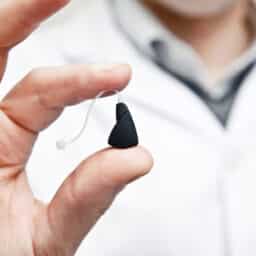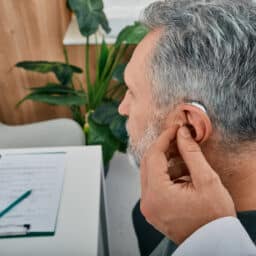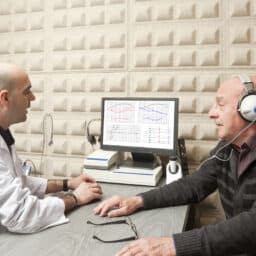Exploring the Relationship Between Anemia and Hearing Loss

About 15% of adults in the United States report experiencing some form of hearing difficulty each year. While hearing loss can arise from various causes, including genetics, noise exposure and aging, emerging studies indicate that underlying health conditions, such as anemia, may also play a role in auditory health. Understanding Anemia Anemia is a condition…
Navigating the Latest Hearing Aid Technologies

Modern hearing aids are more than just amplifiers; they’re sophisticated tools designed to enhance your daily life. For the nearly 28.8 million Americans who could benefit from them, hearing aids today offer seamless integration with technology, customizable sound settings and reliable power, all in discreet, comfortable designs. Whether you’re researching hearing aids for the first…
Self-Esteem and Hearing Aids: What To Know About Feeling Confident in Your New Devices

Stepping into the world of hearing aids for the first time can feel overwhelming. For many, it’s a mixture of relief—finally being able to hear again—and hesitation. Questions about how the devices will look, feel or be perceived by others might linger. If you’ve ever felt self-conscious about needing hearing aids, know you’re not alone….
What to Know About the Connection Between Hearing Loss and Balance Issues
Hearing loss can affect not only your ability to hear but also your spatial perception and balance. This connection arises because both auditory and balance functions are located in the inner ear. When one part of this system becomes damaged, it can create complications for the other. Understanding the link between hearing and balance is…
How Can Hearing Aids Help You Enjoy the Movies?
Going to the movies with hearing loss can sometimes be challenging. You’re not alone as a hearing aid user, as 7.1% of adults over the age of 45 use hearing aids. The good news is that if you have hearing aids, they likely come equipped with advanced features to enhance your enjoyment at places like…
Pay Attention to These Four Key Signs of Hearing Loss

Hearing loss is more prevalent than many realize, affecting approximately 15% of U.S. adults. Despite how common the condition is, the early signs often go unnoticed or unaddressed, leading to delayed treatment. Let’s look at five common signs of hearing loss to help you identify it in yourself and your loved ones and how treatment…
What to Know About Remote Hearing Aid Adjustments

Hearing aids are small, technologically advanced devices designed to collect and amplify sounds to match your specific frequency needs. In the U.S., approximately 28.8 million adults could benefit from the increased communication clarity these remarkable devices offer. One recent development in many hearing aids is the capability for remote adjustments. Let’s take a look at…
How Does Hearing Change Over Time?

Our hearing ability allows us to communicate, enjoy music and stay aware of our environment. However, as we age, our hearing ability naturally declines in a condition known as presbycusis. Understanding why this happens and recognizing the signs can help manage and mitigate its effects, maintaining a better quality of life. What is Presbycusis? Presbycusis,…
Is My Tinnitus Temporary or Permanent?

Tinnitus is characterized by the perception of noise—such as ringing or buzzing—in the ears without any external sound source. Many people will hear the occasional ringing in their ears following a loud concert or movie, otherwise known as a temporary threshold shift. Others, however, are burdened by the constant presence of the symptom. Let’s take…
What Are the Steps of Hearing Loss Treatment?

There are currently more than 1.5 billion people in the world living with hearing loss. While it can feel a little alarming to notice that voices sound muffled or the television is always too low, learning about the steps of hearing loss treatment can help demystify the experience. Hearing Tests The first step in hearing…
